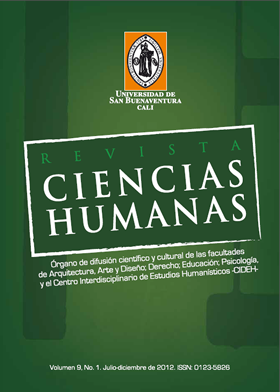The Revista Ciencias Humanas provides open and immediate access to its content, based on the principle of offering the public free access to research to aid in the greater global exchange of knowledge.
Except as otherwise stated, the content of this journal is licensed under a Creative Commons Attribution-NonCommercial-NoDerivatives 4.0 International (CC BY-NC-ND 4.0) license available at http://creativecommons.org/licenses/by-nc-nd/4.0/.
- Attribution. You must give appropriate credit, provide a link to the license, and indicate if changes have been made. You may do so in any reasonable manner, but not in a way that suggests that the licensor endorses you or your use.
- NonCommercial. You may not use the material for commercial purposes.
- NoDerivatives. If you remix, transform, or build upon the material, you may not distribute the modified material.
- No Additional Restrictions. You may not apply legal terms or technological measures that legally restrict others from doing anything the license permits.
Abstract
El artículo es una reflexión en torno a la manera como se comprende la víctima en la ética de la liberación, presentada por el filósofo argentino-mexicano Enrique Dussel. El texto esboza algunos rasgos de la ética de la liberación en su desarrollo, desde la década del setenta hasta la publicación de la Ética del noventa y ocho, como se conoce la última obra en torno a la ética de Dussel. La categoría de orientación para comprender la víctima es la proximidad como la apuesta ética de responsabilidad por el Otro. La ética de la liberación se establece así como una alternativa en una sociedad globalizada y excluyente que hace una opción por la vida y la liberación de la víctima








